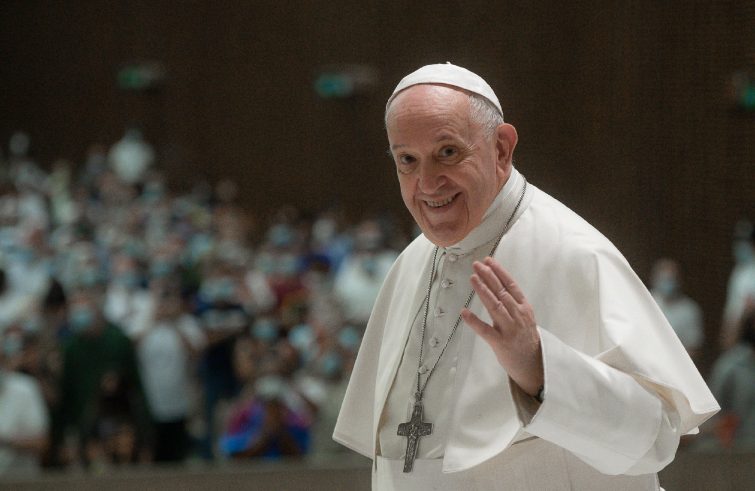
“Foolish” are those who risk losing the faith in Christ that they have received with so much enthusiasm” because “they are unaware that the danger is that of losing the valuable treasure, the beauty, of the newness of Christ”, the Pope said in the catechesis of Wednesday’s General Audience, held in Paul VI Hall, devoted once again to St. Paul’s Epistle to the Galatians, which – Francis explained in unwritten remarks – “is not something new, it is not something mine, it is something that happened in that time and which can repeat itself.” The audience was followed by an appeal to work together for the care of Creation “in these times of grave crisis for the planet.”
In the second part of the Letter, Francis said, Paul guards the Galatians against the risk of
“giving in to formalism – which is one of the temptations that leads to hypocrisy – and denying the new dignity they have received: the dignity of those redeemed by Christ.”
“If you have time, read it,” is the Pope’s advice to the faithful. “The terms the Apostle uses to address the Galatians are certainly not courteous”, the Pope said. “In the other Letters it is easy to find the expressions such as ‘Brothers’ or ‘dear friends’; here no, because he is angry. He says ‘Galatians’ generically and on no less than two occasions calls them “foolish”, which is not a polite term. He does so not because they are not intelligent, but because, almost without realizing it,
they risk losing the faith in Christ that they have received with so much enthusiasm. They are foolish because they are unaware that the danger is that of losing the valuable treasure, the beauty, of the newness of Christ.”
“Paul’s intention”, in the Letter to the Galatians, “is to compel Christians to realise what is at stake, so they do not allow themselves to be enchanted by the voice of the sirens who want to lead them to a religiosity based solely on the scrupulous observance of precepts”, Francis said. They are thus urged not to let themselves “be distracted by other proclamations.”
“The ephemeral often knocks at the door during our days, but it is a sad illusion, which makes us give in to superficiality and prevents us from discerning what is truly worth living for”,
Francis cautioned. “Holiness comes from the Holy Spirit and is the gratuitousness of redemption by Jesus: this justifies us”, the Pope added in unscripted remarks. For Francis, through the Epistle to the Galatians, “Saint Paul invites us too to reflect: how do we live our faith?”: “Does the love of Christ, crucified and risen again, remain at the centre of our daily life as the wellspring of salvation, or are we content with a few religious formalities to salve our consciences? How do we live our faith? Are we attached to the precious treasure, to the beauty of the newness of Christ, or do we prefer something that attracts us momentarily but then leaves us empty inside?”
“Beware of the rigidity they propose to you: be careful. Because behind every inflexibility there is something bad, which is not the Spirit of God.”
In unscripted remarks, the Pope concluded Wednesday’s General Audience pointing out that “throughout history, even today, things happen that resemble what happened to the Galatians”, namely, to be proposed an “inflexible religiosity, that takes away from us that freedom in the Spirit that Christ’s redemption gives us.” “The Letter to the Galatians will help us not to listen to these somewhat fundamentalist proposals that set us back in our spiritual life”, Francis assured. “This is what the Apostle reiterates to the Galatians when he reminds them that the Father ‘supplies the Spirit to you and works miracles among you’. He speaks in the present tense – he does not say, ‘has worked’, he says ‘works’. For, despite all the difficulties we may pose to His action, God does not abandon us but rather abides with us in His merciful love.” “God is always with us in His goodness”, the Pope concluded: “He is like that father who went up onto the terrace every day to see if his son was returning: the love of the Father never tires of us.” “Let us ask for the wisdom always to be aware of this reality”, is the final invitation, along with that “to turn away the fundamentalists who propose to us a life of artificial asceticism. Asceticism is necessary, but wise asceticism, not artificial.”












